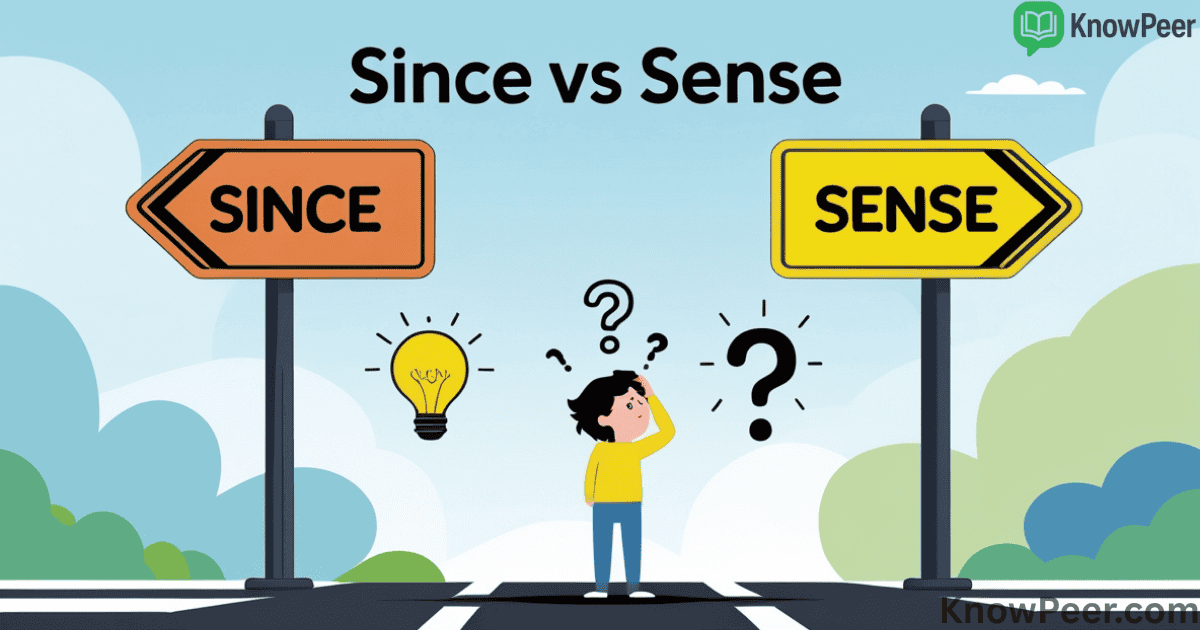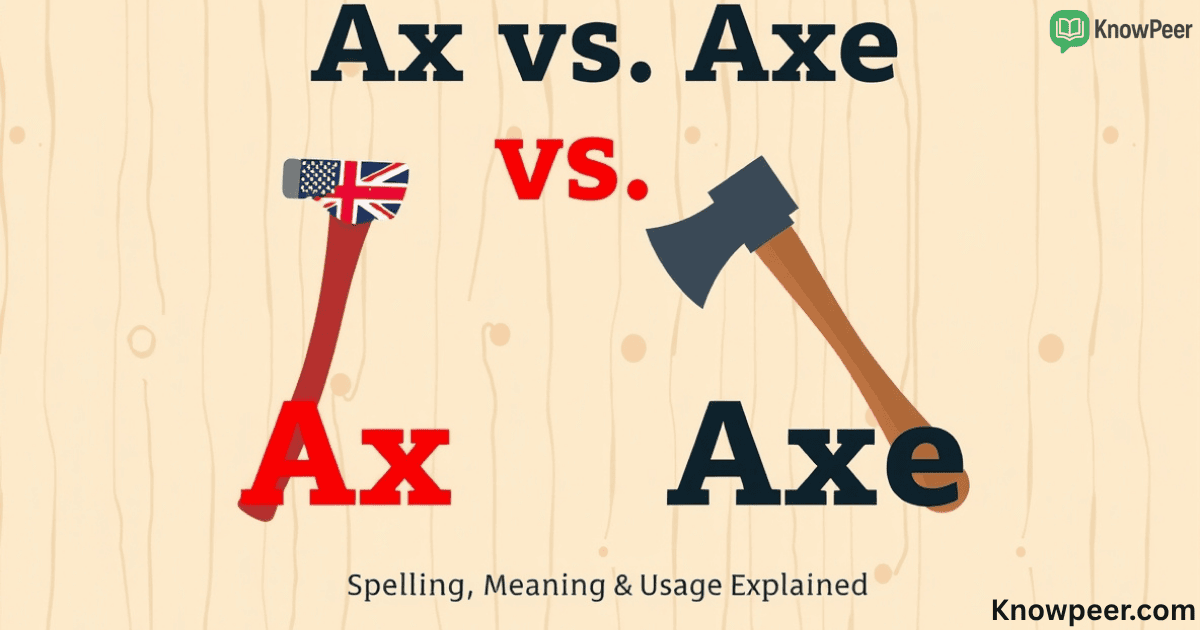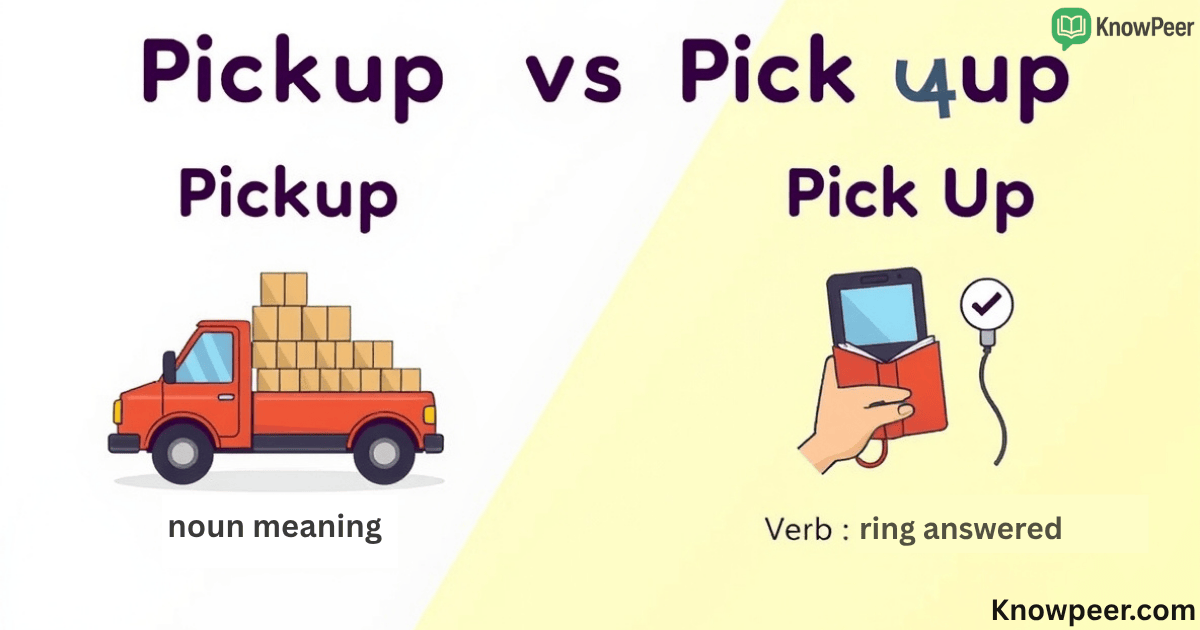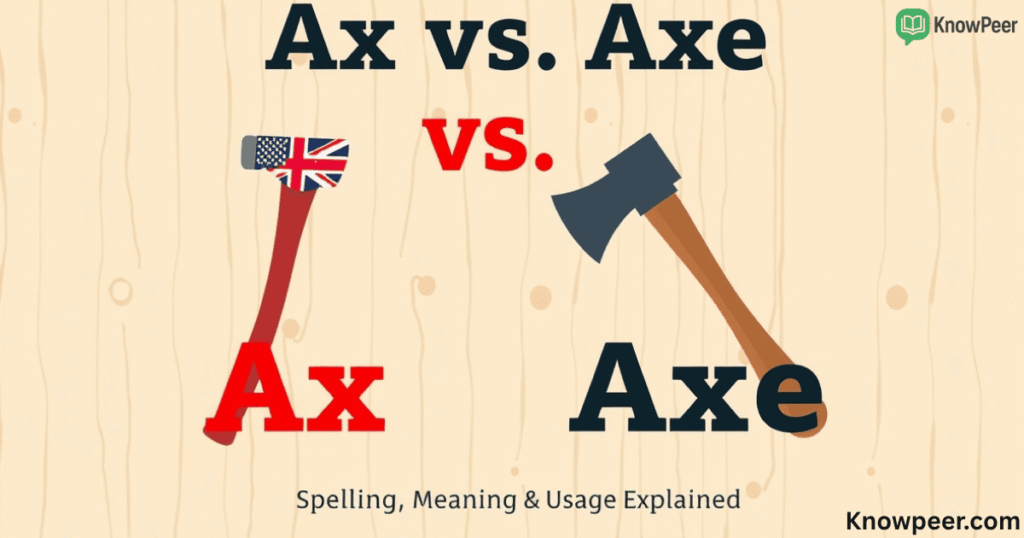Understanding the difference between since vs sense can be tricky. These two words sound almost the same, but they mean very different things. In both casual and formal writing, confusing these words can lead to unclear or even incorrect sentences Since vs Sense. This guide will help you fully understand the meaning of since and the meaning of sense, how they work in grammar, and when to use them correctly. By the end, you’ll stop second-guessing and start writing with confidence.
The problem is not just the sound. These words play different roles in grammar. One is often a preposition of time or a conjunction for reason, while the other is about feeling, logic, or physical perception. Still, people get them mixed up, especially in emails, essays, and daily conversation. So let’s break it all down with clear examples, simple grammar rules, and a side-by-side comparison to clear the confusion once and for all.
What Does “Since” Mean and How Is It Used?
The meaning of since often connects to time or reason. We use since in grammar to talk about when something started or to explain why something happened. That’s why it’s often used as a preposition, conjunction, or sometimes an adverb. It’s a small word with big use in English.
In most sentences, you’ll see since for time or since to show reason. For example, “I’ve lived here since 2010” shows time. But “Since you’re here, let’s talk” shows reason. When used as a conjunction, “since” connects two ideas. The conjunction usage of “since” makes writing smooth and clear. In American and British English, the word behaves the same, though tone and formality might differ slightly. Here’s a table to show the use of since in English in real examples:
| Form | Example Sentence | Function |
| Preposition | I’ve known her since college. | Shows starting point |
| Conjunction | Since it’s raining, we’ll stay in. | Gives reason |
| Adverb | He left a week ago and hasn’t called since. | Means from then until now |
So, when you ask when to use since, check if you’re explaining time or giving a reason. It’s always tied to a starting point or a cause-effect relationship. Remember, grammar rules for since help your sentence feel natural and logical.
What Does “Sense” Mean in English?
The meaning of sense relates to how we feel, understand, or perceive something. It’s a noun when we talk about physical feeling or judgment, and a verb when someone feels or realizes something. There’s also emotional sense, intuition and sense, and even expressions like “make sense” or “no sense.”
When used as a noun, “sense” might refer to the five senses: sight, hearing, smell, taste, and touch. But it can also mean judgment, like in “common sense” or “sense of logic.” When used as a verb, it means to detect or understand something, like “She could sense the fear in his voice.” These meanings are rich and often overlap with human emotion and logic.
| Use Type | Example Sentence | What It Shows |
| Noun | He has no sense of humor. | Mental or emotional quality |
| Verb | I can sense something is wrong. | Feeling or awareness |
| Idiom | That doesn’t make sense to me. | Logical understanding |
In both British and American English, the word is used the same way, though some idioms with sense are more common in casual UK speech. Whether it’s used in daily talk or academic writing, sense as a noun and sense as a verb bring depth to your language.
Since vs Sense: Know the Real Differences
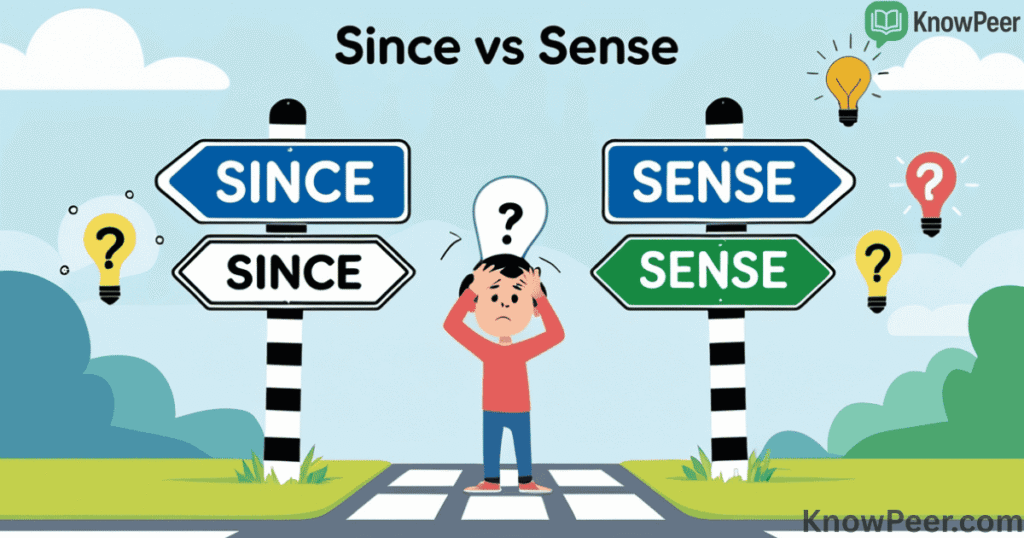
The biggest challenge with since vs sense is that they sound nearly the same but do completely different things in a sentence. This can confuse even native speakers. But if you look closely, their grammar roles are not alike at all. “Since” is mostly used as a preposition, conjunction, or adverb. It connects ideas related to time or reason. You use it when you want to say when something happened or why something happened. On the other hand, “sense” is used as a noun or verb, and it deals with understanding, perception, or judgment. If a sentence is about feeling something or making logical meaning, then “sense” is the right choice.
Let’s clear up the confusion with a simple idea. Ask yourself: Is this sentence about time or reason? Then use “since”. Is it about logic, feeling, or physical perception? Then use “sense”. These two words cannot replace each other. If you mix them up, the sentence will either become confusing or just plain wrong. For example, “This article makes since” is incorrect. It should be, “This article makes sense.” Getting it right not only improves your grammar but also makes your writing sound smarter and clearer.
Understanding these common mistakes with since and sense will help you write better. Always check if your sentence is talking about when, why, or what you feel or understand. That’s the real difference.
Real Examples: Using “Since” and “Sense” Correctly
Let’s put both words into action. Consider this sentence: “Since he arrived, things have improved.” This means his arrival caused change. You could also say, “I sense that things have changed.” Here, you’re noticing a change, not explaining a cause. These examples show how understanding similar-sounding words in context can help improve writing.
Here are more comparisons that show the right usage:
| Sentence with “Since” | Sentence with “Sense” |
| I haven’t seen her since last year. | That doesn’t make sense to me. |
| Since you finished early, take a break. | I sense tension in the room. |
| He’s been missing since Monday. | Use your common sense in this task. |
These examples are simple but effective. They help make the spelling difference and usage very clear. Understanding these types of easily confused English words is essential for strong grammar.
Tricks to Remember the Difference Between “Since” and “Sense”
A smart trick is to think of “since” with time and “sense” with feeling or logic. Another method is to say the sentence out loud. If the sentence sounds like it needs a time connection or reason, use “since.” If it’s about feeling, judgment, or perception, go with “sense.”
You can also remember this:
| Word | Clue Phrase | Quick Meaning |
| Since | “Since 2015” | Time reference |
| Sense | “That makes sense” | Logical meaning |
Reading your sentence aloud and thinking about its goal will help you avoid mix-ups. It’s also a useful proofreading tip—something even experienced writers rely on.
Words That Can Replace “Since” or “Sense”
Sometimes you want to say the same idea without repeating the word. For “since”, you can use alternatives like “because,” “as,” or “after” depending on the sentence. For “sense”, try words like “feeling,” “intuition,” “understanding,” or “logic.”
Here’s a breakdown:
| Instead of “Since” Use… | Instead of “Sense” Use… |
| Because | Logic |
| After | Intuition |
| As | Feeling |
| From the time | Judgment |
This is important in academic writing clarity or business email language, where you want to avoid repetition and improve tone in writing.
Grammar Tips for Writing with “Since” and “Sense”
To follow the best grammar rules, place “since” carefully in complex sentences. Avoid using it too early or too far from its subject. Also, don’t confuse it with “because” in formal writing unless the meaning is clear. As for “sense,” make sure the verb agrees with the subject and tense.
In professional tone or clear writing, the choice of word makes a big difference. Let’s look at two versions of a sentence:
Wrong: The report makes since.
Right: The report makes sense.
The second version has the correct word and the sentence sounds natural. That’s what makes writing effective.
Cultural Notes on “Since” and “Sense” in English
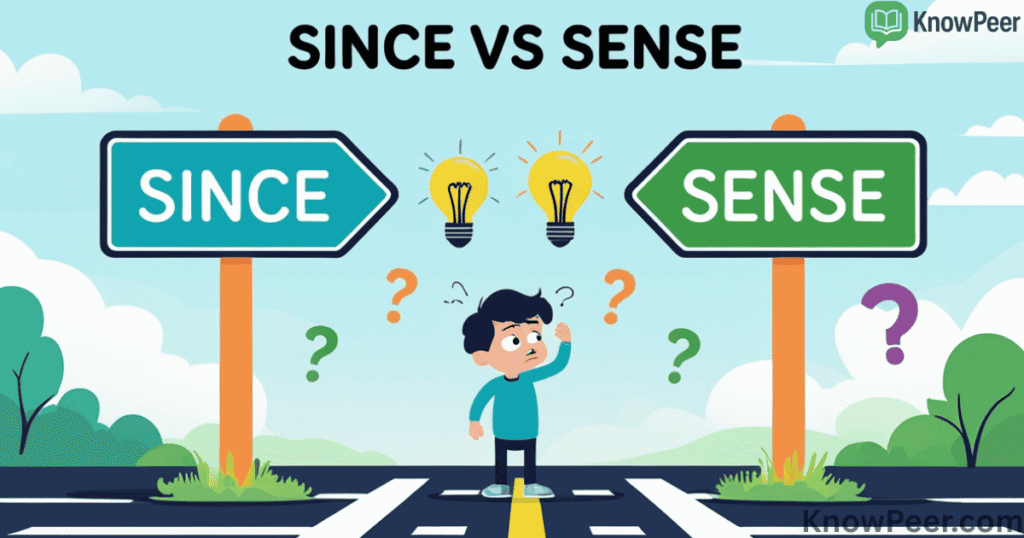
The way “since” and “sense” are used can change slightly depending on whether you’re speaking British or American English. While the basic meanings stay the same, the tone and expressions around them may vary. For example, in American English, people often use phrases like “That doesn’t make any sense,” or “I sense something’s wrong” in casual talk. In British English, you might hear “Come to your senses” more often, which is an idiom meaning someone should stop being foolish and think clearly.
When it comes to “since”, both versions of English use it to talk about time and reason, like “I’ve been here since Monday” or “Since you asked, I’ll tell you.” However, in formal writing, especially in British English, people sometimes prefer “because” over “since” to avoid confusion with time. That’s why the since vs because issue often appears in grammar tips for business or academic writing.
Cultural habits and idioms can shape how often we hear certain expressions. That’s why learning common idioms with sense, such as “make sense,” “no sense,” or “sense of direction,” helps learners sound more natural in conversations. Knowing the small changes between sense in American English and sense in British English can improve your listening and writing skills.
These little differences don’t change the grammar rules, but they do affect how you sound when you speak or write English in different parts of the world.
Conclusion
Now that you’ve explored everything about since vs sense, you know how to tell them apart. You’ve seen their meanings, their grammar roles, and how they show up in real-world language. Whether you’re writing an essay, a business email, or just want to write clearly, getting these two words right will make your writing stronger.
Next time you wonder whether to use “since” or “sense”, think about what your sentence really wants to say. Is it time or reason? Go with “since.” Is it logic or feeling? Choose “sense.” Simple checks like these will help you avoid common mistakes and boost your English fluency.

